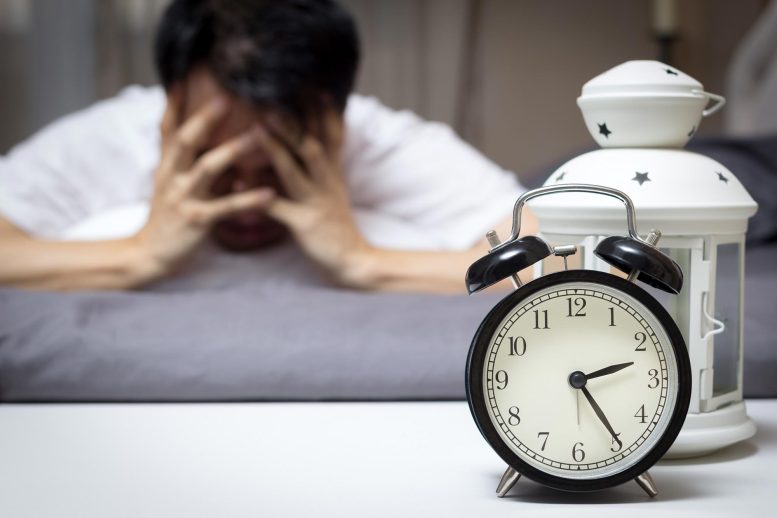
The study also demonstrated that older adults with dementia had an increased risk of memory decline.
Recent research demonstrates that psychological disorder is a significant comorbidity for dementia and other cognitive impairments.
According to recent Canadian research, older adults who have insomnia are more likely to experience memory decline and long-term cognitive impairment, including dementia.
The research, published in the journal SLEEP, is based on data from over 26,000 Canadian Longitudinal Study on Aging individuals aged 45 to 85. The researchers compared completed self-reported assessments of sleep and memory alongside neuropsychological testing in different cognitive domains from 2019 and a follow-up in 2022. Subjective memory deterioration was more likely to be reported by those who said their sleep had been worse throughout that three-year period.

Jean-Louis Zhao and Nathan Cross: “Adequately treating insomnia disorder might become an important preventive measure for cognitive decline.” Credit: Nathan Cross
“We found that insomnia specifically was related to worse memory performance compared to those who have some insomnia symptoms alone or no sleep problems at all,” says the study’s co-lead author Nathan Cross, a postdoctoral fellow at the Sleep, Cognition and Neuroimaging Lab. “This deficit in memory was specific, as we also looked at other cognitive function domains such as attention span multi-tasking. We only found differences in memory.”
The study’s co-leader was Jean-Louis Zhao from the University of Montreal. Lisa Kakinami and Thanh Dang-Vu of the PERFORM Centre contributed to the study, as did Chun Yao and Ronald Postuma from McGill University and Julie Carrier and Nadia Gosselin at the University of Montreal.
Big data and a sharp focus
According to Cross, this study on sleep quality benefits from having a very large data set and a focus on sleep disorders. He notes that the Diagnostic and Statistical Manual of Mental Disorders, the main reference manual used by doctors worldwide, has insomnia listed as a psychological disorder. Insomnia is not just tossing and turning for a time before bed: “A diagnosis requires symptoms of difficulty falling asleep, staying asleep or waking too early three nights a week over a period of three months. Additionally, those with insomnia must report that this sleep problem causes them difficulty in the daytime,” Cross explains.
The participants for this study were divided into three categories: those who reported no sleep issues at the baseline in 2019, those who experienced some symptoms of insomnia, and those who developed probable insomnia. When they examined the data from the 2022 follow-up, they discovered that people who had reported a decline in sleep quality—from no symptoms to some or probable insomnia, or from some symptoms to probable insomnia—were more likely to have memory loss either reported by them or identified by their doctor.
They were also more likely to show a higher prevalence of anxiety, depression, daytime sleepiness, breathing interruptions during sleep, other sleep-related issues, smoking, and a greater body mass index (BMI) score. All of these are considered risk factors for cognitive decline and dementia. Additionally, the study found that men with insomnia perform worse on memory tests than women, suggesting that older men may be at greater risk.
“However, there is some good news: sleep disorders like insomnia can be treated,” Cross adds. “This highlights the importance of properly diagnosing and managing insomnia as early as possible in older adults. Adequately treating insomnia disorder might become an important preventive measure for cognitive decline and mitigate the incidence of dementia in later life.”
Reference: “Insomnia disorder increases the risk of subjective memory decline in middle-aged and older adults: a longitudinal analysis of the Canadian Longitudinal Study on Aging” by Jean-Louis Zhao, Nathan Cross, Chun W Yao, Julie Carrier, Ronald B Postuma, Nadia Gosselin, Lisa Kakinami and Thien Thanh Dang-Vu, 25 July 2022, SLEEP.
DOI: 10.1093/sleep/zsac176
The Canadian Longitudinal Study on Aging is funded by the Canadian Institutes of Health Research and the Canada Foundation for Innovation, as well as the provinces of Newfound and Labrador, Nova Scotia, Quebec, Ontario, Manitoba, Alberta, and British Columbia.









They have, at best, established a correlation and not cause and effect. Might it be that insomnia can be a precursor symptom of dementia that presents before the other symptoms of dementia do?